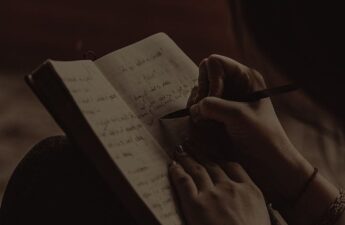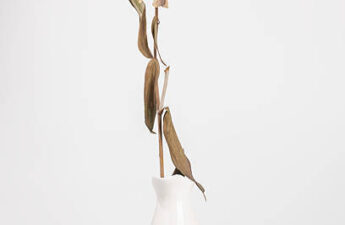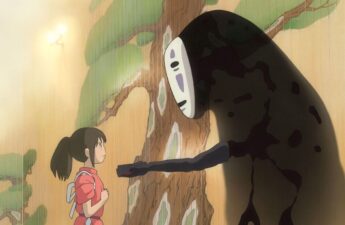Romanticism: a time where seasons of mists and mellow fruitfulness rose, where cynical voids brought life-long yearning,where maiden’s melody was personified as a cuckoo-bird’s, where a skylark bloomed into one’s day and made one consume the nectar of happiness, where art was the greatest treasure one could possess and where love could actually be expressed through words.
Romantic era (18-19 century) gave birth to many romantics such as: John Keats, Percy Shelley, Emily Dickinson, Mary Shelley, Robert Frost, Alfred Tennyson, Edgar Allan Poe and the list goes on.
Today, I have hand-picked some of the best short poems from the romantic era. These poems have played a crucial role in shaping this time-frame. They merely have a word count of 60-80 words yet the impact they have had on English literature in the past centuries is huge.
The following list is not ranked, since each poem is a great classic written by renowned poets who had their own style of writing.
- The Chariot ~ Emily Dickinson
Because I could not stop for Death,
He kindly stopped for me;
The carriage held but just ourselves
And Immortality.We slowly drove, he knew no haste,
And I had put away
My labor, and my leisure too,
For his civility.We passed the school where children played,
Their lessons scarcely done;
We passed the fields of gazing grain,
We passed the setting sun.We paused before a house that seemed
A swelling of the ground;
The roof was scarcely visible,
The cornice but a mound.Since then ‘t is centuries; but each
Feels shorter than the day
I first surmised the horses’ heads
Were toward eternity.
This poem is also called “Because I could not stop for death,” it is one of Emily Dickinson’s most celebrated poems.
‘Death’ in this poem is personified as a gentleman who has taken the female to a ride in a carriage. This ride takes the female through stages of life before coming into a hault in front of her grave.
- Nothing Gold Can Stay ~ Robert Frost
Nature’s first green is gold,
Her hardest hue to hold.
Her early leaf’s a flower;
But only so an hour.
Then leaf subsides to leaf.
So Eden sank to grief,
So dawn goes down to day.
Nothing gold can stay.
This poems revolves around the idea that nothing too precious or valuable can live forever.
Life will end someday and death will approach; youth must be celebrated and loss of innocence regretted.
- Music When Soft Voices Die ~ Percy Shelley
Music, when soft voices die,
Vibrates in the memory—
Odours, when sweet violets sicken,
Live within the sense they quicken.Rose leaves, when the rose is dead,
Are heaped for the belovèd’s bed;
And so thy thoughts, when thou art gone,
Love itself shall slumber on.
In this poem Percy Shelley conveys remorse and sorrow for his beloved’s death. He also tells us how separation from our beloved’s body does not end our connection with them. Love lives after death, maybe even stronger.
- I Know Not How It Falls On Me ~ Emily Brontë
I know not how it falls on me,
This summer evening, hushed and lone;
Yet the faint wind comes soothingly
With something of an olden tone.Forgive me if I’ve shunned so long
Your gentle greeting, earth and air!
But sorrow withers e’en the strong,
And who can fight against despair?
In this poem Emily Brontë tells us how she is torn between her faith in nature whilst being in a pensive melancholy mood.
- Alone ~ Edgar Allan Poe
From childhood’s hour I have not been
As others were—I have not seen
As others saw—I could not bring
My passions from a common spring—
From the same source I have not taken
My sorrow—I could not awaken
My heart to joy at the same tone—
And all I lov’d—I lov’d alone—
Then—in my childhood—in the dawn
Of a most stormy life—was drawn
From ev’ry depth of good and ill
The mystery which binds me still—
From the torrent, or the fountain—
From the red cliff of the mountain—
From the sun that ’round me roll’d
In its autumn tint of gold—
From the lightning in the sky
As it pass’d me flying by—
From the thunder, and the storm—
And the cloud that took the form
(When the rest of Heaven was blue)
Of a demon in my view—
In this deeply morose poem Edgar Allan Poe describes how different he has been from others since his childhood, and how this very sheer difference has forced him to love everything alone.
Difference is not always compelling, yet it can be promising.
- This Is My Letter To The World ~ Emily Dickinson
This is my letter to the World
That never wrote to Me —
The simple News that Nature told
With tender MajestyHer Message is committed
To Hands I cannot see —
For love of Her — Sweet — countrymen
Judge tenderly — of Me
This poem comes under the category of Meta-Poetry, a poem about poetry.
- Stopping By The Woods On A Snowy evening ~ Robert Frost
Whose woods these are I think I know.
His house is in the village though;
He will not see me stopping here
To watch his woods fill up with snow.My little horse must think it queer
To stop without a farmhouse near
Between the woods and frozen lake
The darkest evening of the year.He gives his harness bells a shake
To ask if there is some mistake.
The only other sound’s the sweep
Of easy wind and downy flake.The woods are lovely, dark and deep,
But I have promises to keep,
And miles to go before I sleep,
And miles to go before I sleep.
“Stopping by the woods on a snowy evening” is one of Robert Frost’s most loved poems.
A traveler journeying forth towards his destination has taken a stop at some woods during a dark day, but he must not live here forever in this lovely place; for he has responsibilities to take and promises to keep before he can soundly sleep.
- A Slumber Did My Spirit Seal ~ William Wordsworth
A slumber did my spirit seal;
I had no human fears:
She seemed a thing that could not feel
The touch of earthly years.No motion has she now, no force;
She neither hears nor sees;
Rolled round in earth’s diurnal course,
With rocks, and stones, and trees.
Sir Wordsworth describes death as a long sleep, just like a human cannot feel whilst sleeping, a dead person too has no fears and sense of feeling.
- Trees ~ Joyce Kilmer
I think that I shall never see
A poem lovely as a tree.A tree whose hungry mouth is prest
Against the earth’s sweet flowing breast;A tree that looks at God all day,
And lifts her leafy arms to pray;A tree that may in Summer wear
A nest of robins in her hair;Upon whose bosom snow has lain;
Who intimately lives with rain.Poems are made by fools like me,
But only God can make a tree.
Joyce Kilmer in this poem personifies a tree as a person.
Trees pray to God, they wear nests of Robin in their hair just like humans wear flowers, they experience snow and dance in rain. Trees are the loveliest poems alive and only God can make them.
- The Eagle ~ Alfred Tennyson
He clasps the crag with crooked hands;
Close to the sun in lonely lands,
Ring’d with the azure world, he stands.The wrinkled sea beneath him crawls;
He watches from his mountain walls,
And like a thunderbolt he falls.
In this poem Lord Alfred Tennyson writes about; an eagle, a fearless lone bird, that is a symbol of pride.
An independent bird who is blessed with freedom, but has to catch it’s prey on its own with its ineffable wit and speed like a thunderbolt.
- What Are Heavy? ~ Christina Rossetti
What are heavy? Sea-sand and sorrow;
What are brief? Today and tomorrow;
What are frail? Spring blossoms and youth;
What are deep? The ocean and truth.
Christina Rossetti in this poem shares both concrete items and metaphorical ones, whether it’s a state of mind or moment in time.
- The Rainbow ~ Christina Rossetti
Boats sail on the rivers,
And ships sail on the seas;
But clouds that sail across the sky
Are prettier than these.There are bridges on the rivers,
As pretty as you please;
But the bow that bridges heaven,
And overtops the trees,
And builds a road from earth to sky,
Is prettier far than these.
Christina Rossetti compares the mundane and natural beauty of life in this poem.
- ElDorado ~ Edgar Allan Poe
Gaily bedight,
A gallant knight,
In sunshine and in shadow,
Had journeyed long,
Singing a song,
In search of Eldorado.But he grew old—
This knight so bold—
And o’er his heart a shadow—
Fell as he found
No spot of ground
That looked like Eldorado.And, as his strength
Failed him at length,
He met a pilgrim shadow—
‘Shadow,’ said he,
‘Where can it be—
This land of Eldorado?’‘Over the Mountains
Of the Moon,
Down the Valley of the Shadow,
Ride, boldly ride,’
The shade replied,—
‘If you seek for Eldorado!’
In this poem Edgar Allan Poe preaches that success cannot be achieved in a day.
Even if we grow old, we must keep working towards what we want to achieve.
- I Dwell In Possibility ~ Emily Dickinson
I dwell in Possibility –
A fairer House than Prose –
More numerous of Windows –
Superior – for Doors –Of Chambers as the Cedars –
Impregnable of eye –
And for an everlasting Roof
The Gambrels of the Sky –Of Visitors – the fairest –
For Occupation – This –
The spreading wide my narrow Hands
To gather Paradise –
This poem is one of the best poems know for freedom and creativity, it speaks about the art of observation and how it can bring us numerous opportunities.
- A Bird Came Down The Walk ~ Emily Dickinson
A Bird, came down the Walk –
He did not know I saw –
He bit an Angle Worm in halves
And ate the fellow, raw,And then, he drank a Dew
From a convenient Grass –
And then hopped sidewise to the Wall
To let a Beetle pass –He glanced with rapid eyes,
That hurried all abroad –
They looked like frightened Beads, I thought,
He stirred his Velvet Head. –Like one in danger, Cautious,
I offered him a Crumb,
And he unrolled his feathers,
And rowed him softer Home –Than Oars divide the Ocean,
Too silver for a seam,
Or Butterflies, off Banks of Noon,
Leap, plashless as they swim.
The poem speaks about a tiny bird that comes down to the earth to satisfy his hunger. It also illustrates how he reacts carefully to his environment. The poem explores the human connection with the natural world.




wowwwww
Keep going